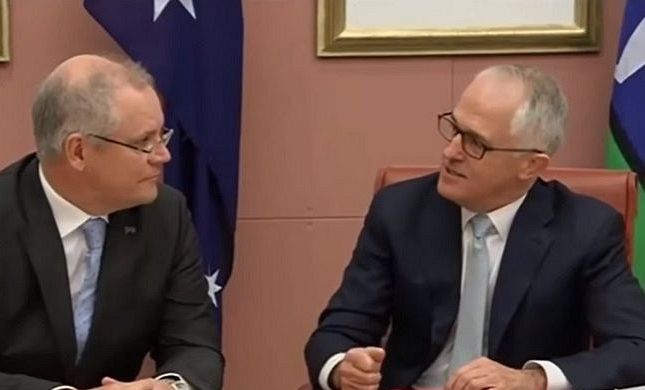The Coalition Government is proceeding with Snowy 2.0.
They claim it will decrease Australia's greenhouse gas emissions and Energy Minister Angus Taylor said it will “bring down power prices for Australian families and businesses”.
As others have noted, both claims are false.
One wonders why the Liberal Party would pursue a policy that has an effect opposite of what the electorate desire.
Power prices
Snowy Hydro works by using power, during periods of low demand, to pump water uphill. In periods of high demand, this water is allowed to flow downhill, through a turbine, to generate power. It takes much more power to move the water uphill than is generated when the water flows downhill.
Therefore, the price of power generated by Snowy 2.0 must necessarily be inflated to cover the cost of the power that is lost. To put it in purely economic terms, Snowy 2.0 will increase demand for, and decrease the overall supply of electricity.
The consequence will be increased power prices. Modelling that was posted on Snowy Hydro's own website shows just that.
Related Articles
- Seeing past and beyond ‘population versus consumption’
- Community bands together to fight devastating drought
- Obligations to the world’s children in the climate emergency
- The environmental aftermath of Australia's Federal Election
- An open letter to our politicians: Save the oceans from plastic pollution
Greenhouse gas emissions
Approximately 86% of power in the national electricity market is derived from fossil fuels. Therefore, coal and gas are the predominant sources of energy when the water is moved uphill. It takes much more power to move the water uphill than is generated when the water flows downhill.
The net result is more use of fossil fuels than would otherwise be the case. Though the situation is slightly more complex.
For example, when coal plants are forced to run at baseload capacity, they may produce far more power than is consumed. If power is used to pump water uphill during this time, then it would not increase power demand. Despite caveats like this, energy economists found that an energy grid with over 85% reliance on fossil fuels, like Australia’s, which introduces extra hydro-electric capacity increases demand for fossil fuels.
If you have heard proponents of coal-derived power say something like “renewables cannot provide baseload” they either do not know what they are talking about or are trying to mislead you. Baseload capacity is the minimum amount of power a plant can produce before it must be turned off. This situation is analogous to a stationary car needing to burn petrol while the engine on.
Criticising this aspect of renewables is to complain that renewables are too efficient.
Given that Snowy 2.0 will increase demand for fossil fuels, mining companies stand to profit handsomely. The fossil fuel industry is one of the most prolific donors to both the Liberal Party and Labor.
Many politicians find jobs in the mining, and energy, sectors after retiring.
Former Prime Minister Tony Abbott, when his resources minister Ian McFarlane retired from politics, stated:
“I hope this sector will acknowledge and demonstrate their gratitude to him in his years of retirement from this place."
Is Tony Abbott suggesting a resources minister should be rewarded in life after politics for performing favours for the mining, and energy, sectors? If so, it might explain why Tony Abbott wanted to spend tens of billions of dollars building up to 100 dams in Australia.
To summarise, taxpayers will pay $12 billion for the privilege of paying higher prices for electricity so that mining companies can enjoy greater profitability.
Alternatively, a solar farm with a slightly greater capacity would cost less than one-fifth of the cost of the Snowy 2.0 expansion. But building solar panels and windmills will not generate profits for mining companies.
Richard Gillies is a scientist.
 This work is licensed under a Creative Commons Attribution-NonCommercial-NoDerivs 3.0 Australia License
This work is licensed under a Creative Commons Attribution-NonCommercial-NoDerivs 3.0 Australia License
Support independent journalism Subscribe to IA.

















